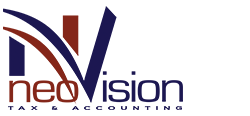The end of the year is a busy season for everyone, but for attorneys and fast food franchise owners, it’s an especially critical time to get financials in order. The good news? A little planning now can save you from a tax-time headache later on. Whether you’re an attorney juggling clients or a franchise owner managing operations, this year-end tax prep checklist will help you streamline your process, maximize deductions, and set you up for a smooth tax season.
1. Gather All Financial Records
First things first: take stock of all your financial records from the past year. This includes income statements, expense reports, and receipts.
Attorneys: You’ll want to check on client billing and fee statements.
Franchise Owners: Make sure to have all your sales records, payroll documents, and vendor receipts handy.
Organizing Tip: Use a digital filing system to scan and categorize receipts and documents by month or expense type. Apps like Expensify or QuickBooks can be a huge help for organizing and categorizing transactions.
2. Review Your Income and Expense Statements
Now that you’ve gathered your records, it’s time to review income and expense statements carefully. These statements will give you a clear picture of your cash flow and help identify where you might qualify for deductions.
Attorneys: Be sure to review any business expenses you may have incurred, such as legal research fees, client meeting expenses, and office supplies.
Franchise Owners: Pay close attention to inventory costs, equipment purchases, and any repairs or maintenance you’ve invested in. These can often be written off or depreciated over time, helping to reduce your taxable income.
3. Maximize Deductions with Industry-Specific Expenses
The good news about running a business is that many of your expenses may qualify as deductions, reducing your taxable income. Here’s a quick overview of key deductions for each industry:
Attorneys: Deductible expenses often include legal research, CLE courses, office rent, malpractice insurance, and marketing expenses. If you work from home, look into the home office deduction, but be sure to keep thorough records.
Franchise Owners: Common deductible expenses include franchise fees, advertising costs, and training expenses. Any travel and lodging for training sessions may also be deductible. If you’ve made renovations or bought new equipment this year, you may be eligible for the Section 179 deduction, which allows you to write off the full cost in a single year instead of depreciating over time.
4. Check on Estimated Tax Payments
If you’ve been making quarterly estimated tax payments, November is the perfect time to review your tax liability and ensure you’re on track. Underpaying can lead to penalties, so it’s better to be proactive.
Attorneys often see fluctuating income throughout the year, so it’s important to reassess estimated taxes regularly. Franchise owners may find that business is seasonal, so if you’ve had an exceptionally good year, consider making an additional payment to avoid penalties.
5. Evaluate Payroll and Employee Benefits
Payroll can be a significant area of tax savings and deductions. Take a close look at payroll records to ensure everything is up-to-date and that there are no outstanding tax liabilities. If you offer employee benefits, consider how contributions to retirement plans or health savings accounts (HSAs) might impact your tax obligations.
For both attorneys and franchise owners, this is also a great time to review end-of-year bonuses. Bonuses are deductible expenses, but remember that timing matters: if you pay them by December 31, they’re deductible for this tax year.
6. Make Necessary Year-End Purchases
If you have upcoming business purchases planned, such as equipment, technology, or office supplies, it can be beneficial to make these purchases before the end of the year. This allows you to claim these expenses in the current tax year, which can reduce your taxable income.
For example:
- Attorneys: Office furniture, new laptops, or legal software could be expensed this year.
- Franchise Owners: Kitchen equipment, POS systems, or even certain repairs can often qualify for immediate deductions or depreciation benefits.
7. Consider a Retirement Plan Contribution
Contributing to a retirement plan, like a SEP IRA or Solo 401(k), can provide significant tax savings and is especially beneficial for self-employed attorneys. Franchise owners with employees can look into contributions for company-sponsored plans, which not only offer tax savings but also serve as a great employee retention tool.
Contributions made before the end of the tax year may be deductible, so it’s worth considering if you haven’t maxed out these contributions.
8. Set Up a Meeting with Your Accountant or Tax Professional
While it’s tempting to handle everything on your own, the complexity of tax laws makes it worthwhile to consult with a professional. An accountant can help you identify deductions you may have missed and advise on strategic moves to minimize your tax bill.
For attorneys and franchise owners alike, working with a tax professional can ensure you’re compliant with all industry-specific regulations and taking full advantage of available deductions.
Taking care of these year-end tasks now can make a world of difference when tax season rolls around. This checklist will help you wrap up your financials with confidence, reduce stress, and potentially save you money.
If you’re feeling overwhelmed or want personalized help, we’re here to make tax season easier for you. Contact us today to schedule a consultation. Let’s make sure you’re set up for a smooth, stress-free tax season!

